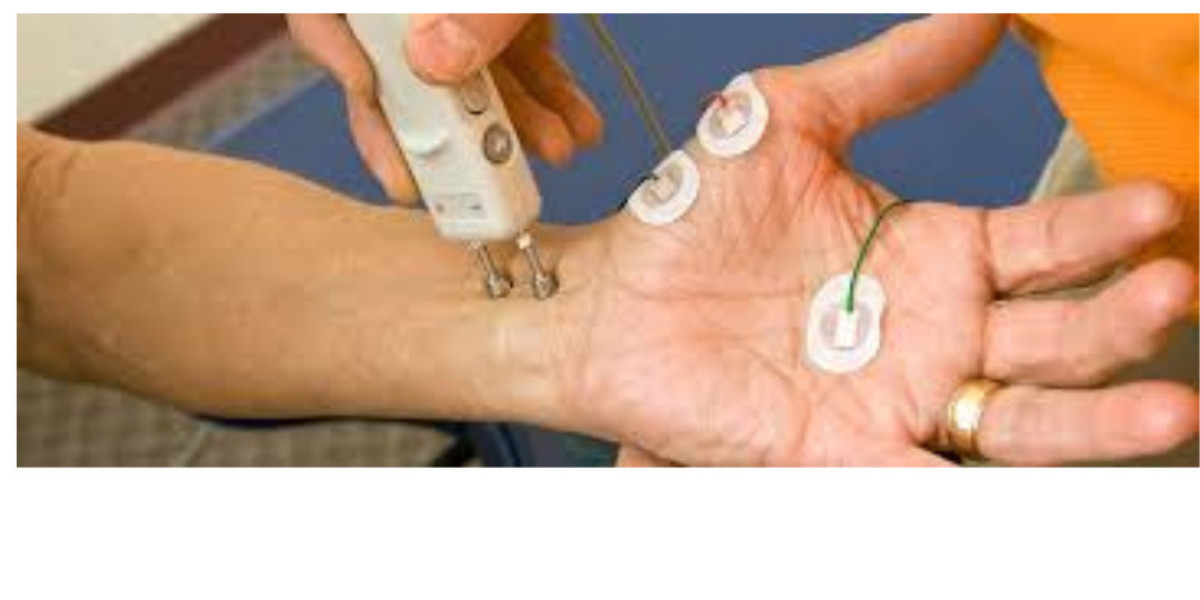NCV Test in Bangalore: Everything You Need to Know About Nerve Health
When it comes to diagnosing nerve-related disorders, advanced diagnostic tools play a vital role in ensuring early detection and effective treatment. One such important diagnostic procedure is the NCV Test in Bangalore, offered at reliable medical centers for patients experiencing unexplained pain, numbness, or weakness. Whether you’re struggling with chronic nerve issues or facing new symptoms, understanding how this test works can make a world of difference in your treatment journey.
What is an NCV Test?
The Nerve Conduction Velocity (NCV) test is a non-invasive procedure used to assess the speed at which electrical impulses move through your nerves. Since healthy nerves transmit signals efficiently, any delay or abnormality in conduction can indicate damage, compression, or dysfunction.
Doctors often recommend this test for individuals dealing with conditions such as:
Peripheral neuropathy
Carpal tunnel syndrome
Sciatica
Herniated discs
Diabetic neuropathy
Guillain-Barré syndrome
Why is the NCV Test Important?
Nerve-related issues can severely impact a person’s quality of life. Detecting them early allows specialists to prevent worsening damage and manage symptoms effectively. The NCV test is particularly important because:
It helps pinpoint the exact location of nerve damage.
It differentiates between nerve and muscle-related issues.
It aids in planning the right treatment and rehabilitation strategies.
How is the NCV Test Performed?
The test is relatively simple and painless, although some may feel mild discomfort during the procedure. Here’s how it is generally performed:
Electrodes are placed on the skin above the nerves being tested.
Small electrical pulses are delivered to stimulate the nerves.
A recording device measures how quickly signals travel between electrodes.
Results are compared with normal ranges to determine nerve function.
The entire process usually takes 30–60 minutes, depending on how many nerves need to be examined.
Preparing for the NCV Test
Patients don’t need to follow strict preparations, but a few things can help ensure smooth testing:
Avoid applying lotions or oils on the day of the test.
Inform the doctor about medications or any implanted devices.
Wear loose clothing for easier access to testing areas.
What to Expect After the Test?
Most people can return to their regular activities immediately after the test. There are generally no side effects, although some might experience minor skin irritation from the electrodes. The results are usually available quickly, helping your doctor decide the next steps in your care plan.
Who Should Get the NCV Test?
Doctors recommend this test for people who experience:
Persistent numbness or tingling in arms, legs, or hands
Chronic back or neck pain with nerve-related symptoms
Weakness in muscles without clear cause
Unexplained loss of coordination
Neurological issues suspected from diabetes or injuries
Early testing helps reduce the risk of long-term damage.
Benefits of the NCV Test
This diagnostic tool offers several advantages:
Non-invasive and safe procedure
Provides accurate insights into nerve health
Helps track progress during treatment
Detects nerve damage at an early stage
Assists in avoiding unnecessary treatments by pinpointing the problem
How the Test Supports Treatment Plans
Doctors often use NCV results along with Electromyography (EMG) tests to get a comprehensive view of neuromuscular health. Based on the results, they can:
Recommend physical therapy
Suggest medications for nerve pain
Plan surgical interventions if necessary
Monitor the effectiveness of ongoing treatments
The Role of Lifestyle in Nerve Health
While medical tests play a crucial role, lifestyle choices also significantly impact nerve health. Maintaining healthy blood sugar levels, eating a nutrient-rich diet, avoiding excessive alcohol, and regular exercise can improve nerve function and reduce complications.
Conclusion
A timely diagnostic approach can save patients from worsening nerve-related complications. By undergoing the NCV Test in Bangalore, individuals can take an important step toward identifying nerve damage and starting the right treatment early. If you’re facing unexplained nerve symptoms, consulting a neurologist and considering this test can bring clarity and peace of mind.
FAQs
1. What symptoms suggest nerve damage?
Common signs include tingling, numbness, burning sensations, sharp pain, and muscle weakness.
2. Is the test painful?
The procedure involves mild electrical stimulation, which may cause brief discomfort but is not typically painful.
3. How long does it take to get the results?
In most cases, results are available the same day or within a couple of days.
4. Can children undergo this test?
Yes, doctors may recommend it for children if they show symptoms of nerve or muscle disorders.
5. What conditions can mimic nerve problems?
Certain muscle diseases, metabolic disorders, or joint issues may present symptoms similar to nerve damage.
6. Are there any risks with this test?
It is considered very safe, with only rare cases of slight skin irritation from electrodes.
7. Can it detect early-stage diabetic neuropathy?
Yes, the test is often used to identify nerve changes in diabetic patients before severe symptoms develop.
8. Do I need to stop medications before the test?
Some medications may affect results, so it’s best to inform your doctor in advance.
9. Is hospitalization required for this test?
No, it is performed on an outpatient basis, and patients can return home the same day.
10. How often should someone with chronic conditions undergo this test?
Your doctor may recommend periodic testing, especially for conditions like diabetes, to monitor nerve function over time.








